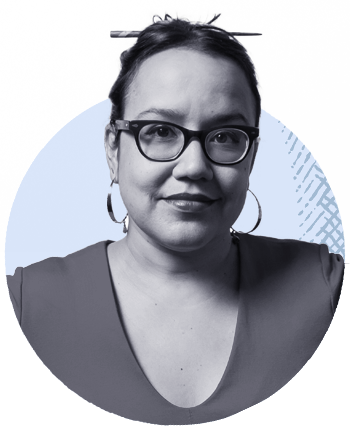How to Prepare for an Interview: A Step-by-Step Guide
When it comes to landing your dream job, knowing how to prepare for an interview can tip the scales in your favor.
You don’t need to stress yourself out before the big day, but you should do a little research (and a lot of practice) beforehand.
Here’s a how-to guide for sprucing up your interview skills, and bidding farewell to all those job search sites once and for all.
Table of Contents
9 essential steps to prepare for a job interview
- Do your research
- Consider why this job appeals to you
- Analyze your strengths and weaknesses
- Anticipate common interview questions
- Prepare your own questions
- Watch your body language
- Dress for success
- Practice with mock interviews
- Bring copies of your resume
How to prepare for an interview FAQs
Additional tips for video and phone interview
What to do after your interview
9 essential steps to prepare for a job interview
Once you’ve aced your pre-screen phone call from the HR department and landed an interview, put in the time to get ready for it. Here are some job interview tips to help you succeed in the process and hopefully, get the job you are vying for.
1. Do your research
One of the easiest ways to stand out in a competitive job market is to gird yourself with plenty of research. Check out the company’s websites and social media accounts, and do some recon on the people you’ll be interviewing with (LinkedIn is a good place to start). Next, learn about the company’s competitors, how it differentiates itself in the marketplace and what former team members have to say about working there. Annual reports, press releases and company review sites like Glassdoor will help guide you.
You’ll also want to spend some time thinking about how you fit into the picture. Craft a powerful message about why you’re the absolute best person for this job, and practice reciting it before your interview.
2. Consider why you want the job
This may sound cheesy, but knowing your “why” is absolutely critical for getting the job you want. Take a moment to jot down a mission statement for your career, and how it aligns with the position you’re applying for.
It’s worth practicing this “spiel” before your interview, but it’s even better to carry it around in your heart. Again, if all this sounds hokey, rest assured that, if nothing else, you’re sussing out whether or not this job is truly a good fit. And if you’re struggling to find alignment, you’ll know that it’s probably time to look for another position.
3. Analyze your strengths and weaknesses
This is one portion of the interview you can almost always count on — and the old, “my weakness is that I work too hard,” just doesn’t cut it anymore.
It can be tempting to fudge your answer, but exposing your vulnerabilities isn’t always a bad thing. Especially if you can use a past experience to show how you’ve grown, and how you’re actively engaging in self-improvement.
The same goes for your strengths. Be prepared to discuss them — and maybe even boast a little. (Bonus points if you can find a way to pepper in any certifications or other professional development opportunities you’ve undertaken.) Be sure, though, to temper that with insight on how these strengths are relevant to the job you’re applying for.
4. Anticipate common interview questions
A quick Google search can help you drum up some common interview questions to help you prepare. The blog sections of job hiring sites like ZipRecruiter are another good resource. You’ll know what exact questions your interviewer is going to ask, but thinking about how you’d respond to some of the most common ones will go a long way. Those include:
- Can you tell me about yourself?
- Do you work better in a team or on your own?
- What are your salary expectations?
- What are your strengths and weaknesses?
- Why do you want to work for this company?
- Why are you the best candidate for this position?
- Where do you see yourself X years from now?
- What are your salary expectations?
- What motivates you?
- Can you tell me about a failure you experienced with a previous employer? How did you handle it?
5. Prepare your own questions
You are interviewing this company just as much as they are interviewing you. Create a list of questions that will help you understand what the culture is like, and whether the role is a good fit for you. Here are a few options:
- What are the expectations for my role and my productivity?
- How would you describe the company culture?
- What are you looking for in a candidate?
- How would you measure the success of the person in this role?
- What are some challenges I could expect in this role?
6. Watch your body language
Body language is a reflection of your attitude. Practice speaking into a mirror to get a sense of how your mood, words and demeanor might come across to an interviewer.
You can take this a step further and record yourself. Rewatch the video and — even if it’s painful — send it to friends and family for feedback. Or ask your spouse, roommate or BFF to do a couple interview run-throughs, where they play the part of “interviewer” and, when you’re finished, give you some constructive criticism about how you did.
7. Dress for success
Consider wearing business attire for your interview, even if the company has adopted a more "business casual” environment. This isn’t about suppressing your personality or style, but rather, reducing distractions so that your skills and experience are the main focus of the interview. Once you’re hired, you’ll have a bit more freedom to experiment with style.
8. Practice with mock interviews
Ask friends or family to do a “dress rehearsal” of the interview process from beginning to end.
Or, if that gives you the heebie-jeebies, hire a professional career coach to do the same. Budget permitting, this is a great way to get professional-level feedback from someone intimately familiar with the hiring process.
To make the most of your mock interview, choose a location that isn’t familiar to you, like a local coffee shop. Ideally, you’ll wear the same clothes and conduct the rehearsal around the same time of day as your anticipated interview.
Be sure to ask for feedback, and repeat the process for as many rounds as you need to feel confident in your interviewing skills.
9. Bring copies of your resume
Always have copies of your resume on stand-by. You’ll probably be interviewing with a number of people at the same time — make their life easier, and save them a run to the printer, by having your resume within reach.
This advice applies to video interviews, too. Before the interview begins, be ready with a link to your resume you can drop into the chat at a moment’s notice.
How to Prepare for an Interview FAQs
How can I research the company I'm interviewing with?
How can I prepare for different types of interviews?
What are some effective techniques for managing nerves and stress during the interview process?
How can I ensure my appearance is professional and appropriate?
Additional tips for video and phone interviews
Since many interviews are conducted online these days, we think it’s helpful to add tips just for your video interview. These tips can also be used in case you have a phone interview.
Reduce or eliminate distractions
Get rid of all background clutter and noise. Interview in front of an empty wall or otherwise very neat space if possible. If you’ll have a crying baby or a barking dog around, explain to your interviewers in case there’s no way to move to another space.
Have the ideal setup
Make sure you have great lighting and exceptional audio. Consider purchasing a ring light and a good pair of earbuds so there are no echoes or problems seeing your face clearly. If you’ll be using a phone for the video feed, make sure it’s on a stable surface or a tripod to keep it from shaking.
Test your setup
Most video platforms will let you test your audio and video set-up beforehand. Arrive at your workstation early so you can prepare accordingly. Once you’re live, be sure to greet your interview panel with a smile.
Avoid filler words when speaking
Using words like “um” or “like” excessively can make you appear nervous or unprepared, so try to avoid them. Varying your tone can help you convey interest — and the fact that you’re actually paying attention — to your interviewer.
What to do after your interview
Always follow up with a thank you email (or emails, if you interviewed with multiple people).
No matter the outcome, be sure to keep your interview skills fresh and your cover letters ready. The more you practice, the quicker you’ll get the job offer of your dreams.
Summary of Money's Guide on How to Prepare for an Interview
- Do your research - Leverage social media and platforms like Linkedin to look into the company and who you’re interviewing with.
- Consider why this job appeals to you - Think deeply about whether you’ll actually be content in the position you’re applying for.
- Analyze your strengths and weaknesses - This is a tried and true interview question, so be ready with a well-thought out answer that’s both honest and tailored to the position.
- Anticipate common interview questions - You don’t need perfect answers to every question, but having a sense of what sorts of questions may be thrown at you will help you feel calmer and better prepared.
- Prepare your own set of questions - There’s usually time baked into every interview for candidates to ask their own questions. Think about what’s important to you and fire away.
- Watch your body language - Practicing in front of a mirror can make a world of difference.
- Practice with mock interviews - Most people feel more confident after they’ve gone through a few “dress rehearsals” with friends or family members.
- Dress for success - First impressions matter, so put your best foot forward with your appearance.
- Bring copies of your resume - It makes everybody’s life easier if you come prepared with extra hard copies (or have a link at the ready if it’s a video chat).
- Additional tips for video interviews - Video interviews have risen alongside remote work, and they often require some extra prepwork.
- What to do after your interview - Send a thank you note to the interviewer/s, to leave a great impression.



